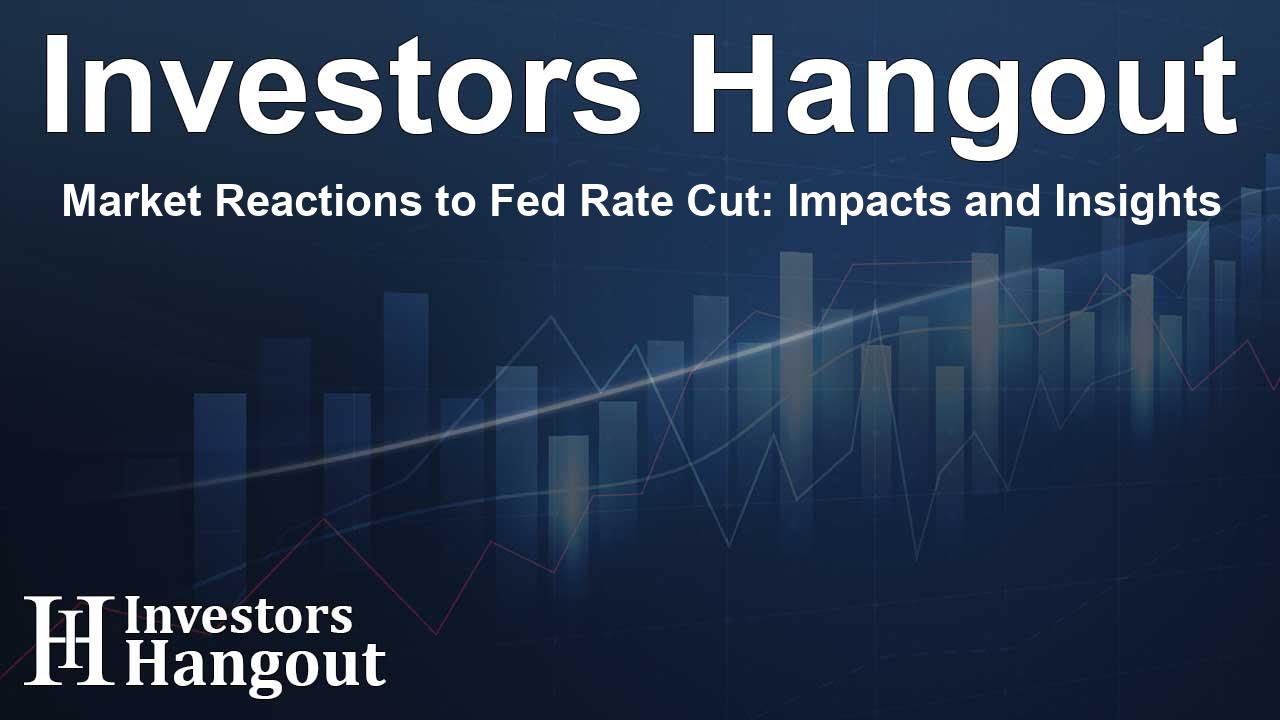Market Reactions to Fed Rate Cut: Impacts and Insights

Federal Reserve's Bold Move: A New Era of Borrowing Costs
The Federal Reserve made headlines recently with a significant adjustment to borrowing costs, reducing the short-term policy rate by half a percentage point. This marks the first reduction in four years, bringing the target range down to 4.75% to 5%. This unexpected move has sparked various reactions from investors and market analysts alike, focusing on the implications for the economy and forthcoming financial strategies.
Impact of the Rate Cut on Treasury Yields
Following the Fed's announcement, longer-dated Treasury yields have been on the rise, which are critical in determining the pricing of loans for purchases such as cars and homes. The increase signals a shift in market sentiment, as Wall Street expressed disappointment with the Fed's future outlook despite the immediate rate cut.
Investor Insights
Cindy Beaulieu, Chief Investment Officer at Conning, highlighted that although the initial rate cut was a surprise, the Federal Reserve's communication suggested a measured and cautious approach in the coming months. During his press conference, Fed Chair Jerome Powell emphasized that “this is just the beginning,” and reassured investors that the Fed would carefully assess each subsequent move.
Reactions from Financial Experts
Beaulieu views this strategy as sensible, asserting that the economy remains robust. She anticipates that the 10-year Treasury yield might rise above 4% as the market begins to adjust its expectations. Volatility in the bond market has significantly increased since the Fed began adjusting rates in 2022; while inflation concerns have subsided somewhat, sudden shifts in the rates market can still affect portfolios negatively.
Future Projections and Market Volatility
The turbulence in the bond market is likely to continue as people grapple with the reality of a changing economic landscape. Some analysts argue that the rate cuts may be indicative of underlying weaknesses in the economy rather than a bold move towards recovery.
Characteristics of the Current Market Climate
Karen Manna, a fixed-income portfolio manager, points out that both bond and equity markets often exhibit extreme behaviors as they react to the same information. It can be challenging for investors to plan effectively without clarity on future economic conditions, including how the housing market may develop in response to these financial adjustments.
Investor Strategies and Considerations
With these developments, it is crucial for investors to reassess their strategies. Manna advises investors to monitor liquidity within their portfolios to avoid getting trapped in illiquid assets, especially amid ongoing market fluctuations as investors adapt to the implications of the Fed’s decisions.
Preparing for Continued Uncertainty
As Manna notes, the upcoming period may be filled with uncertainty regarding both Federal Reserve actions and the broader effects on the rates market. It is essential for investors to stay vigilant and be ready to adapt accordingly to maximize their advantages in this ever-evolving economic environment.
Frequently Asked Questions
What immediate changes did the Fed implement recently?
The Fed lowered its short-term policy rate by half a percentage point for the first time in four years, adjusting the target range to 4.75% to 5%.
How did the market react to the Fed's rate cut announcement?
While the initial rate cut was welcomed, longer-dated Treasury yields rose, indicating some disappointment in the Fed's future guidance.
What do financial experts predict for the 10-year Treasury yield?
Experts suggest that the 10-year yield could exceed 4%, reflecting market adjustments to the Fed's new rate landscape.
What should investors consider during this period of uncertainty?
Investors are advised to monitor liquidity in their portfolios and prepare for volatility as the market adapts to the Fed's rate changes.
How might the housing market respond to the Fed's rate cuts?
The housing market's reaction remains uncertain, but a recovery could influence rates and investor strategies significantly.
About Investors Hangout
Investors Hangout is a leading online stock forum for financial discussion and learning, offering a wide range of free tools and resources. It draws in traders of all levels, who exchange market knowledge, investigate trading tactics, and keep an eye on industry developments in real time. Featuring financial articles, stock message boards, quotes, charts, company profiles, and live news updates. Through cooperative learning and a wealth of informational resources, it helps users from novices creating their first portfolios to experts honing their techniques. Join Investors Hangout today: https://investorshangout.com/
Disclaimer: The content of this article is solely for general informational purposes only; it does not represent legal, financial, or investment advice. Investors Hangout does not offer financial advice; the author is not a licensed financial advisor. Consult a qualified advisor before making any financial or investment decisions based on this article. The author's interpretation of publicly available data shapes the opinions presented here; as a result, they should not be taken as advice to purchase, sell, or hold any securities mentioned or any other investments. The author does not guarantee the accuracy, completeness, or timeliness of any material, providing it "as is." Information and market conditions may change; past performance is not indicative of future outcomes. If any of the material offered here is inaccurate, please contact us for corrections.